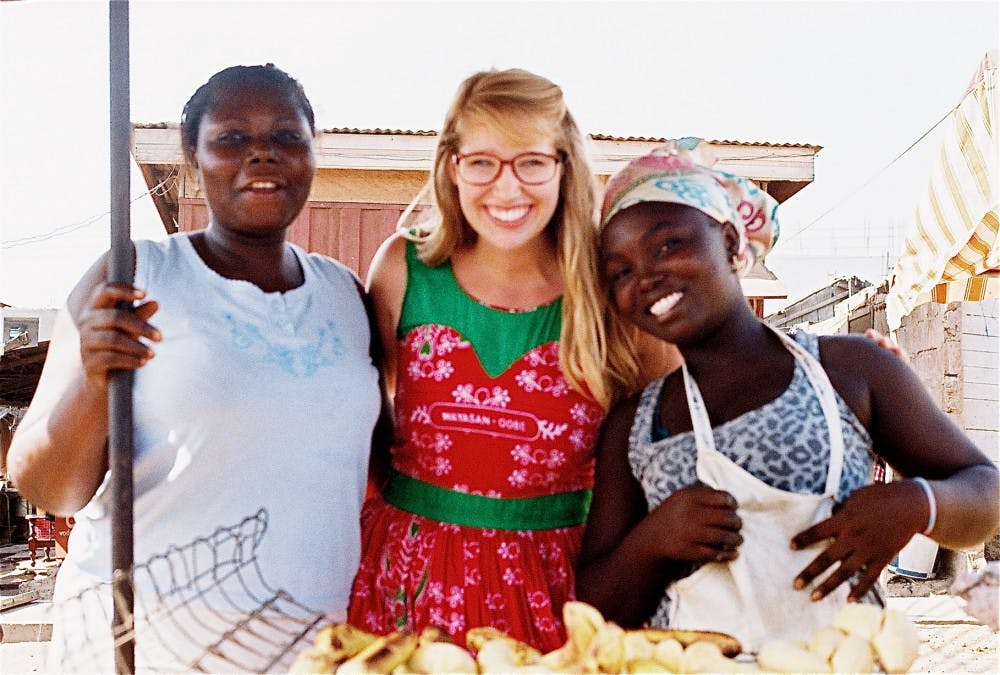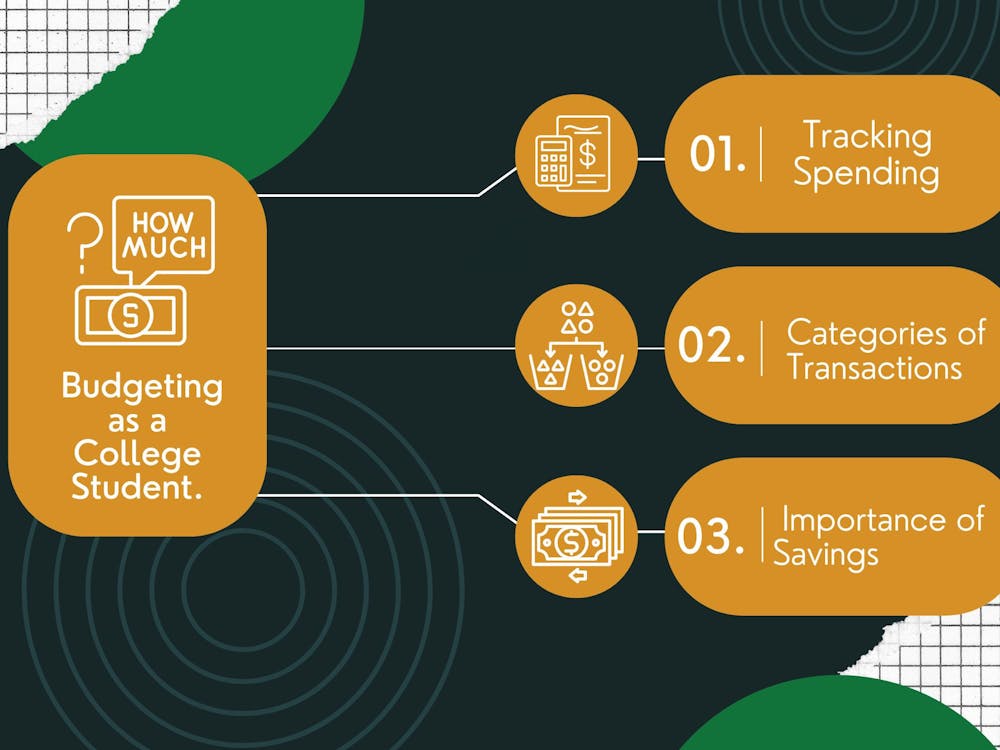By Nastacia Voisin |
Almost 7,500 miles away, in a city filled with color and noise, where they were greeted “Obroni! Obroni!” while traveling streets exploding with people, four University of Portland social work students served at challenging and inspiring practicum placements.
Last semester, seniors Sara Tellez, Nicole Navlet, Lindsey Morris and Corey Hubbard volunteered at two orphanages and a hospital in Accra, the capital of Ghana. Their placements were made possible after a year of coordination with Beth Okantey, a certified social worker living in Ghana.
As the first UP students to have placements in Ghana, Tellez, Navlet, Morris and Hubbard worked to apply social work skills in a country that defied their expectations.
“It wasn’t what we were expecting, but it turned out to be something amazing,” Tellez said, who volunteered four days a week with Hubbard at the Save Them Young orphanage.
Teacher, mentor, playmate
Run by Ghanaians, Save Them Young orphanage survives on donations, taking in orphans, runaways and abandoned or lost children. Tellez and Hubbard helped five housemothers manage 72 children by working as teachers, mentors and playmates to children anywhere from 7 months to 17 years old.
“Basically, it was slightly controlled chaos because the housemothers were so busy doing the washing and cooking and cleaning they didn’t have time to watch the kids,” Hubbard said .
Tellez and Hubbard expected to work primarily as teachers and counselors, but soon realized simply interacting with the children was as valuable.
“It doesn’t matter who you were or what you looked like – they would run towards you and want to play,” Tellez said .
Tellez and Hubbard applied their social work skills by holding informal counseling conversations about the children’s future plans and current worries. They were unable to access the orphanage’s under-construction schoolhouse, but they worked with children on language development while swapping games and songs.
“Every day I would be exhausted and dirty,” Hubbard said. “It was just wonderful.”
Breaking comfort zones
Volunteering in a country where social work is still developing presented challenges.
Morris, who worked at the Tema General Hospital, said the demands of creating a support group for HIV-positive youth, making house calls and working in an inpatient ward were rigorous.
“90 percent of the time I was in Ghana I was out of my comfortable zone,” Morris said. “In a good way.”
In Ghana it is not unusual to correct children’s behavior with corporal punishment; a practice Tellez and Hubbard found difficult to witness.
Professor Kevin Jones, who is the director of social work practicum placements, said those cross-cultural challenges were expected.
“There’s not a well-established program of social work in Ghana,” Jones said. “When our students are going over and bring social work values and ethics from an American perspective to a different culture, that presents a lot of challenges.”
Tellez, Navlet, Morris and Hubbard met regularly with their field instructor, Beth Okantey, to discuss their placements and struggles. Additionally, the students took an online social work theory and methods course taught by UP professor Anissa Rogers which helped them make sense of their situations.
A country of community
Amid their ethical dilemmas and personal struggles, Tellez, Navlet, Morris and Hubbard learned from the Ghanaian rhythm of life.
The four students stayed at homestays, learned to ride tro tros (minibus taxis) and picked up a scattering of Twi, the principal native language. Eventually, the cheerful mayhem of Accra shifted from a sensory overload to a new normal.
At first the four wondered if the calls of “obroni!” (White people/foreigners) were to identify them as privileged westerners, but they came to realize it was a cry of welcome, not of anger.
“If you walk down the street and don’t say hello to people, you’re being rude. I loved saying ‘hi’ to every single person,” Hubbard said. “It was basically like being wrapped up in this giant, familial hug,”
Although the Ghana practicum program will be offered to social work seniors next year, one of the challenges with international social work is creating sustainable services.
Jones emphasized that “We never – here or abroad – want to create a situation where our students are getting more than they’re giving.”
Now that the placement challenges can be better anticipated, Jones hopes that next year’s Ghana cohort will start to develop renewable programs that can be continued after students leave.
Tellez found leaving a place she felt so needed painful. With so many temporary volunteers, and so little attention, the children at Save Them Young seemed heartbroken each day when she and Hubbard left.
“They would cry – cry like there’s no tomorrow,” Tellez said. “You’d think the worst was happening. Every day they would walk with us, and I’d see their little faces popping out through the gate. They’d call, ‘Sara, Sara!’ That last time was the hardest.”
Returning home: ‘It was cold’
The ache of leaving Ghana was heightened by the culture-shock they endured when they returned to the U.S.
“In Ghana, I felt so connected,” Morris said . “I felt loved there. Almost every single person I met there inspired me in some way.”
Arriving around Christmas time, Morris said she was taken aback by the materialism of the season, and how isolated she felt by it.
The first morning of Hubbard’s homecoming she took the bus to downtown Seattle.
“My first impression was that it was cold,” Hubbard said. “The people were colder. No one said hello. No one made eye contact on the bus. It was all concrete and glass and brick. It was just a shock.”
Struggling with similar feelings, Morris and Tellez have drawn strength from the Ghanaian saying, “Wayson-Gobe,” which means, “Who knows tomorrow?” It’s an expression that asks people to celebrate in the moment, love what they have and live without regret.
“I’m still struggling to figure out how I got to this point in my life” Tellez said. “I remember being in Ghana thinking: how did I get here? How did I get to be amid these beautiful children of God? I still don’t know.”








